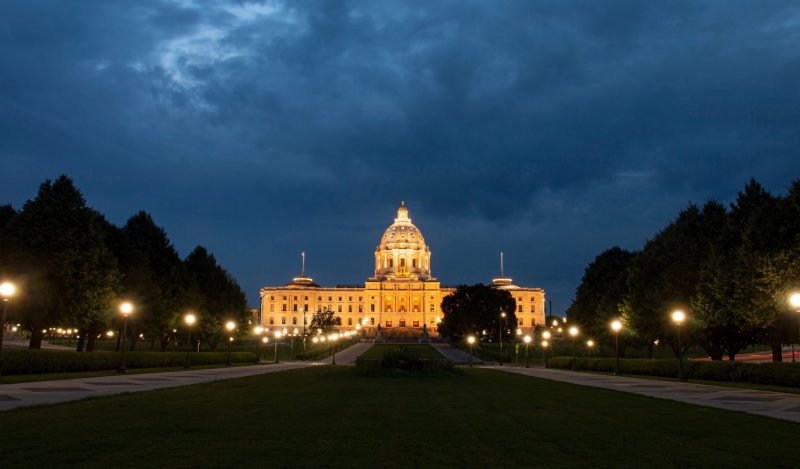As a medical professional with over two decades of experience in laboratory science, I observed Governor Tim Walz’s handling of the 2020 Covid-19 crisis in Minnesota with increasing concern. What started as a reasonable two-week pause quickly evolved into a series of questionable policy decisions that contravened scientific reasoning, constitutional rights, and fiscal responsibility.
The reliance on PCR test results was pivotal in Governor Walz’s decision-making process. With my background, I recognized that the high-cycle thresholds used could lead to false positives. Each cycle doubles the genetic material, potentially amplifying insignificant viral loads to misleadingly positive results. This issue could significantly skew the reliability of mass testing, especially among asymptomatic individuals—a strategy Governor Walz heavily depended on.
As the lockdowns dragged on from weeks into months, the haphazard nature of Governor Walz’s “essential” business classifications became glaringly apparent, showcasing blatant biases within his administration. Notably, while churches were compelled to close their doors, liquor stores and casinos were allowed to continue operations. This selective enforcement was not only illogical but a direct infringement on our First Amendment rights, particularly the freedom of religion.
Moreover, while small businesses were mandated to shutter, large retail chains remained open, highlighting a clear disparity in treatment with profound impacts on Minnesota small businesses. In the first year of the pandemic, these small businesses hemorrhaged over 72,000 jobs. Minnesota now finds itself trailing far behind in new business creation, a clear indicator of economic stagnation and leadership failure.
During the same period, Minnesota experienced a sharp increase in excess deaths. According to the Mayo Clinic, there was a 17% rise in “deaths of despair”—including suicides, drug overdoses, and deaths from malnutrition. These deaths disproportionately affected ethnic minorities and were considered preventable.
The policies implemented during this time had negative consequences for all Minnesotans, but they were particularly harmful to the Black community. This outcome stands in stark contrast to the Governor’s stated intentions of protecting citizens, which were used to justify the response to street protests in Minneapolis. These events and their consequences suggest a significant failure in leadership.
Perhaps the most detrimental policies were those concerning education. Governor Walz’s decision to shutter schools and mandate online learning disregarded the developmental needs of children. Personally, as a grandmother, I saw this firsthand. Fortunately, my kindergarten-aged grandson could attend a private Christian school that balanced safety with practicality, unlike most public school children under Walz’s policies. These closures ignored evidence that children were at minimal risk from Covid-19. Walz, a former teacher, faced embarrassment when Minnesota’s fourth graders’ reading scores fell below the national average in 2022, signaling the lasting impact of his policies.
Simultaneously, the Department of Education under Walz overlooked rampant fraud in federal Covid-19 nutrition aid. By September 2022, 48 Minnesotans from Feeding Our Future were charged in what US Attorney General Merrick Garland described as the nation’s largest pandemic-related fraud, involving $250 million. Governor Walz knew of these irregularities by November 2020 but continued reimbursements, claiming judicial mandate, though court records show otherwise.
A June 2024 audit criticized the Department of Education’s oversight, leading to Walz receiving a congressional subpoena for related communications. While 26 individuals from Feeding Our Future have been convicted, no state officials have been charged, highlighting another administrative failure.
In the 2024 legislative session, under the complete control of Democrats, Minnesota’s staggering $17.5 billion surplus was entirely depleted, coupled with an additional $10 billion in new taxes levied on its citizens. This financial strategy propelled a colossal 40% growth in government, placing an immense burden on the state’s small businesses which constitute 99% of Minnesota businesses, under the highest corporate tax rate in the U.S., at 9.8%.
Amidst these events, the local media has consistently overlooked the failings of Governor Walz, even as tens of thousands of residents choose to leave the state annually.
Governor Walz’s tenure during this crisis has been a stark lesson in governance overreach, lack of accountability, and fiscal irresponsibility. It has urged many Minnesotans to reassess their understanding of civic rights and the role of government, which is especially pertinent given the upcoming election. This legacy should serve as a cautionary tale for all.
As we move forward, it’s crucial that we remain vigilant. We must question narratives, scrutinize data, and hold elected officials like Governor Walz accountable. The pandemic revealed how fragile our liberties can be when fear takes hold and when leaders overstep their constitutional bounds by imposing emergency orders. Let this be a lesson: knowledge of our constitutional rights isn’t just academic—it’s our best defense against future encroachments on our freedoms.
The Covid-19 crisis may have tested our resolve, but it also reinforced a fundamental truth: an informed and engaged citizenry is the bedrock of a free society. As we navigate future challenges and elect our leaders, let’s carry this lesson forward, ensuring that our rights are never again so easily set aside by executive order overreach.
Published under a Creative Commons Attribution 4.0 International License
For reprints, please set the canonical link back to the original Brownstone Institute Article and Author.



